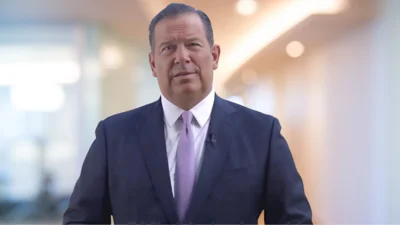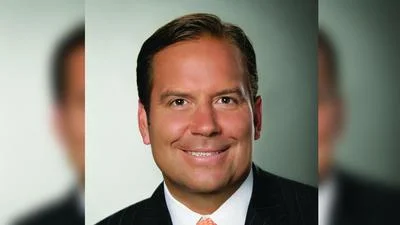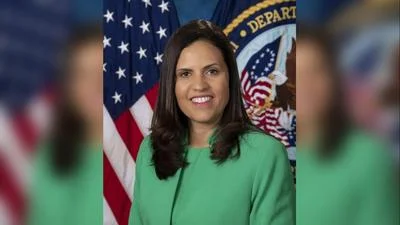Omer Osman Secretary of Transportation | Official website
Omer Osman Secretary of Transportation | Official website
On the eve of the anniversary marking the end of the Public Health Emergency (PHE) declarations put in place at the onset of the COVID-19 pandemic, the State of Illinois has released a playbook detailing measures to prepare for future public health emergencies and recommendations for future administrations.
"Following a once-in-a-century event like the COVID-19 pandemic it is critical that we take the time to thoroughly study how our state responded to the emergency and seek to learn lessons that will put us in a stronger position the next time such an all-of-government response is required," said Governor JB Pritzker.
The playbook was produced through a review of COVID-19's impact on Illinois residents, focusing on health and human services outcomes; compiling lessons learned during the pandemic; and developing forward-looking recommendations to improve preparedness for future public health emergencies and non-emergency state operations.
“Reimagining public health in Illinois to best prepare for future public health emergencies requires careful evaluation and implementation of lessons learned,” said IDPH Director Dr. Sameer Vohra. “Under Governor Pritzker’s leadership, IDPH has been committed to recovering and growing our public health systems in the wake of the COVID-19 public health emergency."
The review produced a 13-page after-action report and a 33-page playbook intended to guide an all-of-government response to potential future public health emergencies. The playbook lays out three phases of any response: establishing, activating, and delivering. Under these headings, 14 steps are identified as necessary for mobilizing state agencies, other branches of government, health system partners, outside experts, and stakeholders to deliver a coordinated disaster response.
The after-action report found that strengths of Illinois' response included strong central leadership at the top; a data-driven approach; focus on equity in allocating resources; effective use of community relationships and public-private partnerships; and effective use of executive orders that expedited delivery of Personal Protective Equipment (PPE) and other resources.
The report noted that the focus on equity contributed to achieving better rates of vaccine uptake for non-white Illinoisans than non-white residents in all but one peer states.
While the report indicated that Illinois demonstrated clear strengths in the COVID-19 response, it also identified lessons learned that can improve future responses to infectious disease public health emergencies. Key challenges experienced at the start of the pandemic were limited planning for a major infectious disease emergency, limitations on health and operational data infrastructure and capabilities, lack of real-time data needed to measure and respond to health equity needs and broader health impacts, variations in community engagement effectiveness, and depletion of the public health workforce due to attrition and a slow hiring process.
The report recommended action in three key areas: improving preparedness, modernizing systems, and investing in communities while continuing to build public trust. Over the past year, IDPH has already begun implementing these measures along with state partners to address these critical COVID-19 lessons.
Governor Pritzker included an additional $28 million in funding in his Fiscal Year 2025 Budget Proposal to carry out initiatives connected to preparing for any future public health emergencies. These include modernizing public health data systems, growing the public health workforce, implementing department-wide quality improvement measures, and enhancing public health communication.
Last May 11, Governor Pritzker declared “Illinois Public Health & Health Care Hero Day" on the day the COVID-related Public Health Emergency (PHE) declarations expired.






 Alerts Sign-up
Alerts Sign-up